How to Survive a Home Disaster
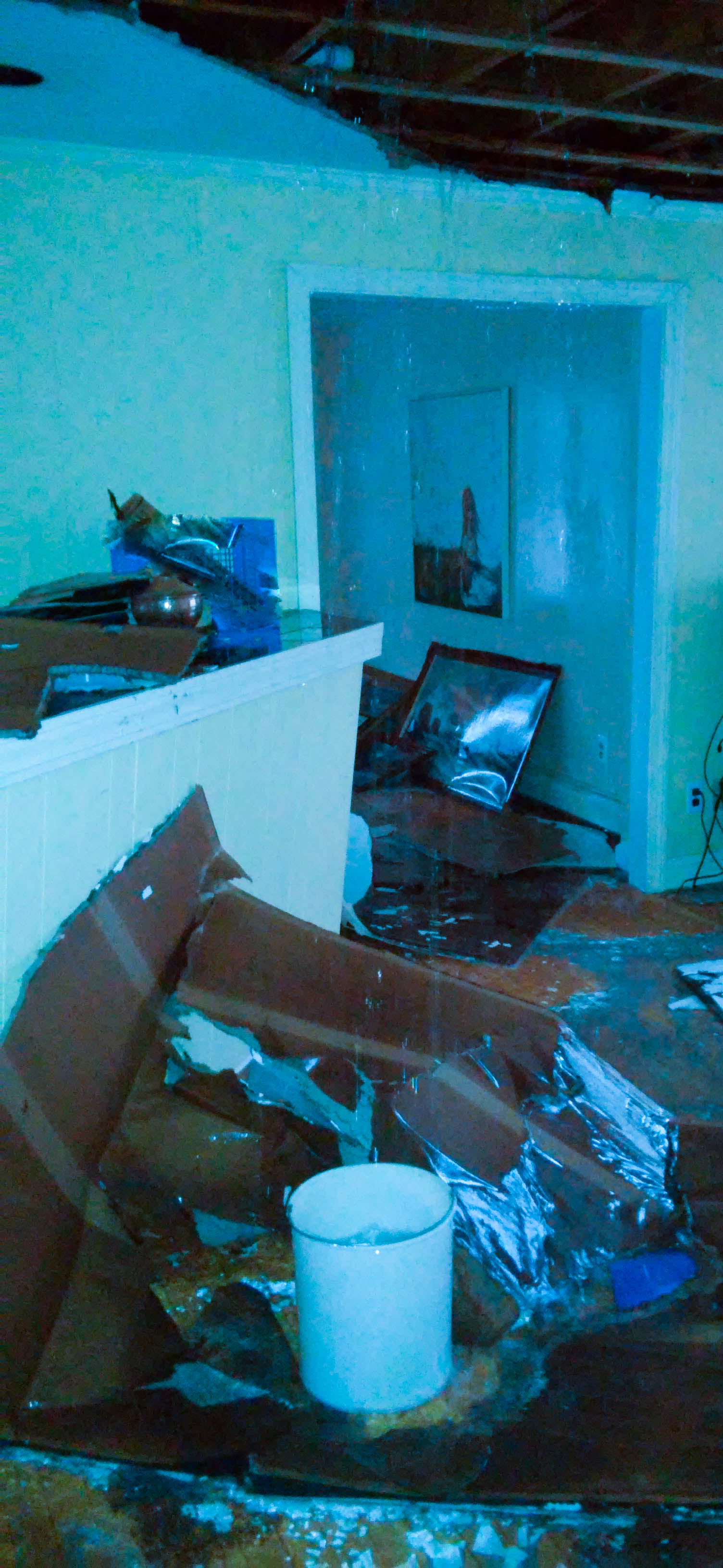
You never really know quite what to expect when you return home from travel, but when I came back to my parents’ house (three pounds lighter!) from New Orleans, on what would have been my father’s 75th birthday, I sure wasn’t expecting this:
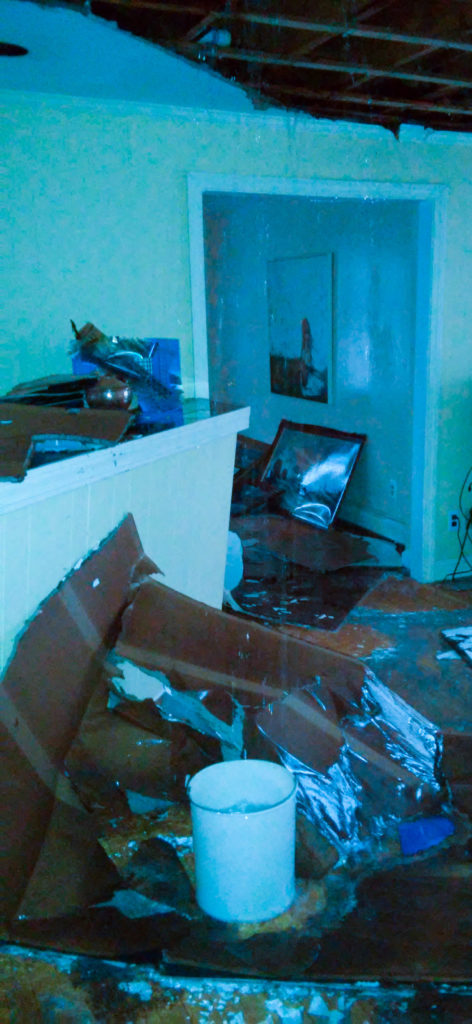
I ran down to the basement to get the plumber’s emergency number from the furnace. The water was cold and ankle-deep. Light fixtures had fallen, and one was dangling. Bookshelves had collapsed. The floor was an underwater obstacle course of ceiling tile, magazines, and I didn’t want to know what else.
This post contains affiliate links. For more information, click here.
I entered the phone number by the light of my cell but couldn’t get a signal so I ran back up the stairs, my wet shoes squishing and squeaking with each step. Our HVAC company said they’d get someone there ASAP. As I waited for the plumber to get through the Monday afternoon traffic, someone from the office tried to talk me through finding the shut-off. He had all the calm patience of Captain Pierce directing surgery over the phone, but the basement was so dark, and I didn’t want to flip a light switch because I was up to my ankles in water, and lights were on the floor anyway, and I had to keep going back up the stairs to communicate, and I couldn’t find the right place, so Hawkeye suggested I call the fire department.
I heard the siren from around the corner just as the plumber sprang from his van, asked, “Where’s the basement?” and ran down through the door I showed him. The water stopped gushing. The plumber and I then gathered in the kitchen, where the water level was lowest, along with the two firemen, who remembered my parents. I didn’t know what I was supposed to do. The plumber told me to call my insurance company and recommended ServPro for the massive clean-up that would follow.
The Liberty Mutual rep was pleasant and helpful as she took down the information I gave her, asked questions, gave me a claim number, and told me to keep my hotel and restaurant receipts. She said that ServPro could call them directly to arrange authorizations and payment for their part of the work. Next I called ServPro; they said somebody could be by in an hour or so. The plumber and firemen stayed with me until they knew someone else was on the way. Another plumber would be coming in the morning to fix the heat.
While I was waiting for ServPro, two other restoration company reps came by, having learned of my plight from the public fire department call. I felt like they wanted to gnaw on my freezing bones.
Dave from ServPro arrived around 6:30, looked around, and called Liberty Mutual, who asked him to hold off on clean-up until the heat was restored.
I checked in to a Hampton Inn in a nearby town, took a hot shower, and couldn’t sleep.
Early the next morning, I met Zane, another plumber, at the house. After checking the system out, he concluded that the cause of the trouble was a broken valve on the boiler, which caused the heat to go out, which caused the pipes to freeze and burst. On Wednesday, he came back with a replacement valve and got the boiler going. Then began a game of Whack-a-Mole. Every time he fixed one pipe, water would go a little further and leak from the next pipe. At some point, two more plumbers came to help. I was thankful that all three were nice and competent guys, with a good attitude as they worked hard to get the heat working. Much of what hadn’t been damaged by the flood itself had to be demolished by the repair, as they pulled down what was left of the family- and living-room ceilings and cut into walls to access the pipes. Water leaked from baseboards one by one and onto the hardwood floors upstairs and down. I bundled up in leggings, two pairs of sweats, two pairs of socks, a turtleneck, a cardigan, a hoodie, and two knit hats and tried to help.
On Friday morning, a woman came to remove samples from every wall and floor on the first level to test for asbestos, which was found in the kitchen, mud, and powder room floors. The one good thing that happened that January 20 was that the heat was finally fixed, though the domestic water was still off. I called Liberty Mutual and ServPro to give them the good news and drove back to the Hampton Inn.
Dave called back to say that an electrician would be coming by at 1:00 to make sure there was enough power for ServPro’s massive drying equipment. Moments after watching Donald Trump become president, I pulled into my driveway, where the electrician was waiting, and drove into the garage, where he followed me. Then he went into the basement, pronounced my electrical system “gahbage”, and rigged power for the ServPro equipment.
A small army of ServPro guys came, bringing enough fans to rival the Hancock wind tunnel. They were great guys too, pleasant and polite, and they kept me in loop every step, patiently answering my questions. They carefully wrapped wine glasses and spread the soaked family photos out to dry as they moved furniture into the garage and even onto the back porch, checking with me before throwing away ruined art and artifacts. My heart sank as I told them to toss my mother’s carefully preserved wedding dress.
On Sunday, the electricity blew out. The guys worked until dark. I had to have one of them clear a path through the maze of heavy green fans in the kitchen so I could get into the garage and pull the manual release to open the door and drive back to the Hampton Inn.
ServPro’s electrician said he couldn’t come back until Thursday, so the guys brought a generator and heaters on Monday to keep the dry-out going as they continued pulling down walls, pulling out insulation, and pulling up flooring. The insurance adjuster also came on Monday to see the damage for himself and take notes and measurements. He also coordinated with ServPro to use their pictures and samples of flooring.
Demolition continued for several days, but my one relief was that the kitchen floor cabinets could be saved. I settled into a routine; I’d come out from the hotel around 8:00, let the guys in, ask if I could do anything for them, and mostly stay upstairs behind a zippered plastic barrier, with no power and no running water. As soon as they left, I grabbed a flashlight, unzipped my plastic prison, found my way out the front door and around to the unlocked garage, and drove back to the hotel.
Following up Wednesday afternoon on an email from Dave, I called three different numbers at MassDEP to obtain an emergency waiver to have the flooring with asbestos removed and got three different voicemails, one with an out-of-the-office message from August. I left one message on one of the other voicemails, which advised quite firmly to leave one message, and waited for a call back. Yes, I’m an idiot. I did receive a call from the electrician, saying he couldn’t come until Friday.
By Thursday, I still hadn’t heard from MassDEP, called all three numbers again, and got all three voicemails again. Finally, someone at the asbestos abatement company was able to get through to an inspector, who called me to give me a waiver number, which I then called to relay to the abatement company, a weird game of telephone on a strangely cold afternoon for August.
Stress on the other hand moved quickly. My jaw started to crack. My pale skin turned pasty, and my eyes took on a hollowed-out look. When I looked in the mirror, I saw my mother.
Early Friday morning, I met the asbestos crew, who sealed off the three rooms and left for the weekend. The electrician came back and restored most of the power to the house, and a pleasant local inspector pronounced his work fine but advised me that I’d need another inspection before the walls were closed up during the rebuilding. Unfortunately, the electrician didn’t restore power to the garage, saying it wasn’t part of his contract. I turned to another electrician I’d used before.
On Monday, the asbestos crew came, pulled up the floors, and butchered the kitchen cabinets. They hadn’t told me that the refrigerator was unplugged, so it had gone without power for eight days. I still had no running water, so I threw away all the rotten food but couldn’t wash out the interior.
I called Zane to come back and restore the domestic water, which took another couple of days. On Tuesday, he came down from working upstairs and asked whether anything had fallen through the open ceiling; then he spotted the object himself, picked it up, and went back upstairs with it. A few minutes later, another object fell. I picked it up to bring to him. I didn’t realize that he’d be soldering it. I dropped it immediately into a puddle of water in the family room’s slatted subfloor. It sizzled. He came running down. “Oh, no, did you pick that up?”
At first I brushed it off. “I cook; I’ve been burnt before; this isn’t too bad.” And for three or four minutes, it wasn’t. But then the pain seared as second-degree burns formed on two of my fingertips. Basic first aid says run cold water over burns; don’t use ice. But I didn’t have running water, and I couldn’t take the pain. I spent the rest of the day with my fingers wrapped with ice. Back at the Hampton nine hours later, I put a cup of ice water by the bed, took three Advil, and dipped my fingers in the water till I fell asleep.
On Wednesday, ServPro finished their demolition; my electrician fixed the power in the garage; the plumbers restored the running water, and I washed out the fridge. On Thursday, I moved back home and did a laundry marathon. I hadn’t been able to wash my own clothes for nearly a month (I had to order socks and other things from Amazon), and nearly every towel and rag in the house had been dirtied in the clean-up.
By nightfall, the house was feeling pretty creepy. All the first-level flooring was gone; there remained just slats with gapes and hollows big enough to see into the basement. The door to the basement had been removed, as well as the door between the kitchen and dining room, and the doors to both hostess closets in the foyer. The powder room was also bereft of its door, as well as its walls, toilet, and sink. The ceiling and wet bar in the family room, where we used to sit in the evenings, were gone, as was the ceiling and fireplace mantle in the living room, where I used to watch the Red Sox with my father the last summer before he died. In the dining room, where we used to have holiday meals, there were large holes in the ceiling and upper walls; the wainscoting was completely torn out. There was a large hole through the center of the kitchen ceiling, above the peninsula that divides the area where we used to cook and bake from the area where we used to have family dinner at the table, where I last laughed with my father hours before he went to the hospital that final time, where I sat across from a mother who no longer knew me and tried to make half a conversation. Even with the heat set to 70 degrees, the downstairs was cold and drafty, with no sheetrock or insulation. My home looked and felt like one big spooky cabin, haunted by torn-up memories and the sounds of a New England winter night.
On Friday, my nails and skin cracking from so many days in the cold, I went to Bella Sante, my favorite local day spa, for a Dazzle Dry manicure and their Provence Soothe and Scrub Massage and my first afternoon of relaxation in weeks. Then Saturday, I set out for Virginia to await the insurance estimate. As I drove the miserable drive down I-95, I thought about how my recent ordeal had strangely strengthened my confidence; if I could handle this, I could handle anything.
Still, I really hope nothing like this ever happens to you. But here are some lessons that I hope will benefit you if it does:
Before the disaster:
Have good insurance.
I have been very satisfied with Liberty Mutual. Everything is covered, after our small deductible. It has been a particular relief to have enough coverage for restaurants and hotels when the house has been uninhabitable.
Maintain an emergency household fund in a liquid account.
Liberty Mutual paid ServPro directly, and the adjuster gave me a substantial check when he came out, but it wasn’t enough to cover the plumbing bills, let alone my hotel and restaurant costs; I had to pay those costs out of pocket and await reimbursement.
Keep emergency numbers handy near the most commonly used door.
Also keep a notebook and pen. Include your doctors, plumber, and power company. Also note a restoration company; I highly recommend ServPro. Doing this would have saved me from wading through the flooded basement to get the plumber’s emergency number.
Keep all important documents in a strong box.
Include birth, death, baptism, and marriage certificates, the deed to the house, titles to your cars, passports. Consider including some emergency cash.
Know where the emergency shut-offs are.
This probably wouldn’t have done me much good, because the damage to my house was already so severe by the time I discovered it. But if you catch a problem right away, it could save you substantial trouble.
Get rid of clutter.
Store what you must, but do so neatly in clear or labelled plastic bins, not cardboard boxes. Part of the reason it’s taken me so long to clean out this house is that my mother saved so much–every calendar and every budget notebook from every year, every card and drawing my brother and I ever made, every ribbon from every gift we ever received. Just a month before the flood, my wonderful aunt helped me clean the basement, which in the first moments after the flood seemed like a wasted effort but really is a very good thing; it may or may not have saved me from breaking my neck tripping over clutter as I waded through the water in the dark, but sorting through things is a lot easier when they’re dry.
Become active and involved in your local area and fight to keep all environmental and safety regulations minimal and enforced locally.
The local people I dealt with were courteous, caring, and helpful. State bureaucrats were unresponsive. Do not willingly cede any control of your home to bureaucrats who don’t know you from church or PTA meetings.
After the disaster:
Be grateful it isn’t worse.
It’s trite and true. As long as no one was killed or seriously injured, everything else is just stuff.
Write everything down.
A major disaster is overwhelming. You might think you’ll remember everything but you won’t. Keep a notebook of everything you have to do. It will save you a lot of stress.
Be good to the people who come to work for you.
No one expects you to display the wit of Mark Twain. But no matter how stressed and heart-broken you are, you can still be courteous and appreciative. Ask how you can help them, and then let them do their jobs. Both the plumbers and the demo crew thanked me for being so nice.
Be good to yourself.
This is an extremely stressful time. When your home isn’t right, nothing is right. You have people asking questions and myriad big and little decisions to make, and no peaceful home in which to rest and recover at the end of the day. Do what you can to eat right; exercise right; sleep right. I achieved all this with varying success. The first couple of days I couldn’t eat or sleep. By Wednesday evening, the exhaustion and hunger caught up with me. I started going to Skybokx 109 in the Hampton Inn most evenings for dinner. Of course, sports bars aren’t known for their healthy menus, but you can make do. I started with soup every night, usually tomato bisque, and very welcome at then end of a long day in a cold house. Then I’d have a salad or a healthy appetizer like ahi tuna, skipping the wontons. I did decide I’d earned a nightly glass of Sauvignon Blanc, and most nights I treated myself to a couple of Hampton’s complimentary oatmeal cookies. In the mornings, I never knew what time I’d be eating again, so I stuck with tummy-filling protein at the hotel’s breakfast buffet, scrambled eggs or an omelet, turkey sausage if they had it. No hunger-spiking carbs–no bagels, no scones, no pancakes. The Hampton was a little sporadic about having its grab-and-go sack breakfasts available, but I took one whenever they were there. The bottle of water was particularly welcome on long days without running water at the house, and the apple was filling on afternoons without lunch. For the first week, I couldn’t even think about exercise, but afterwards I started going to the hotel’s small gym to squeeze in 20-30 minutes of stress-relieving cardio on the treadmill. I was also able to start reading and writing in bits and pieces after a week, but most nights I’d drift off watching Frasier.
On the bright side, I did lose another nine pounds.

After my misspent youth as a wage worker, I’m having so much more fun as a blogger, helping other discerning travellers plan fun and fascinating journeys. Read more …
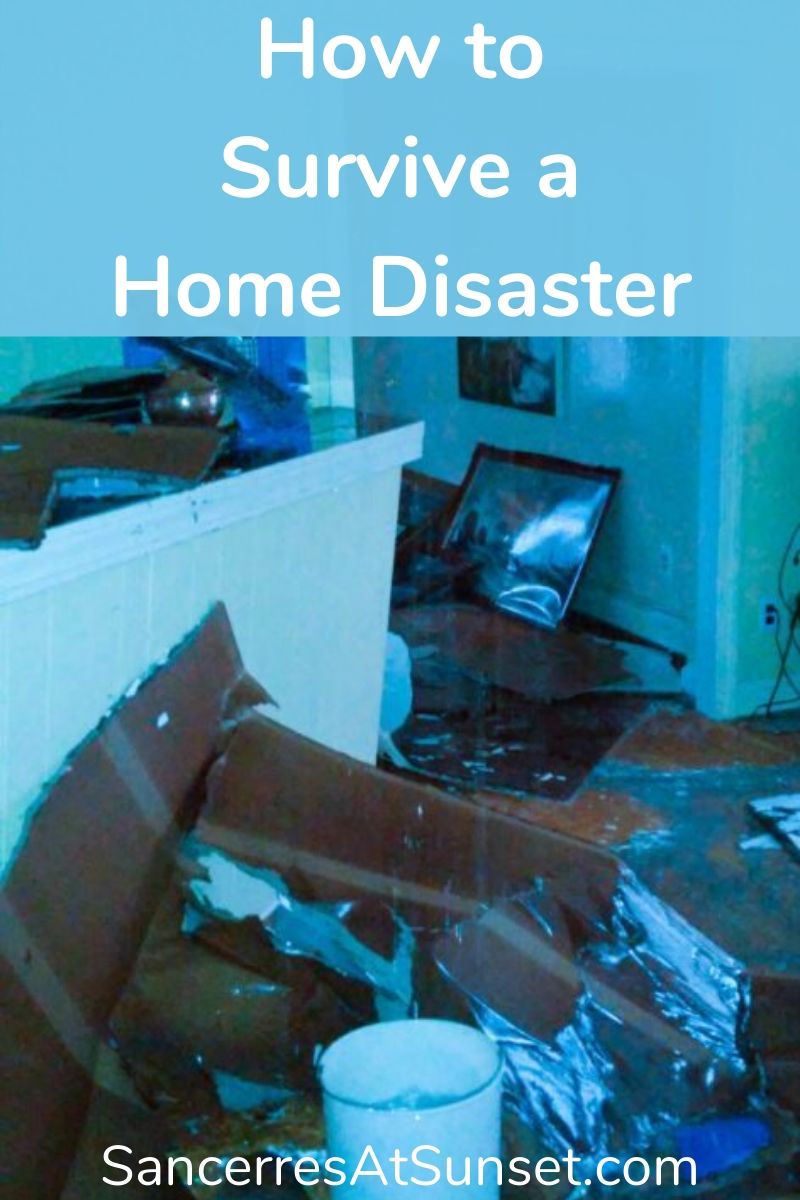
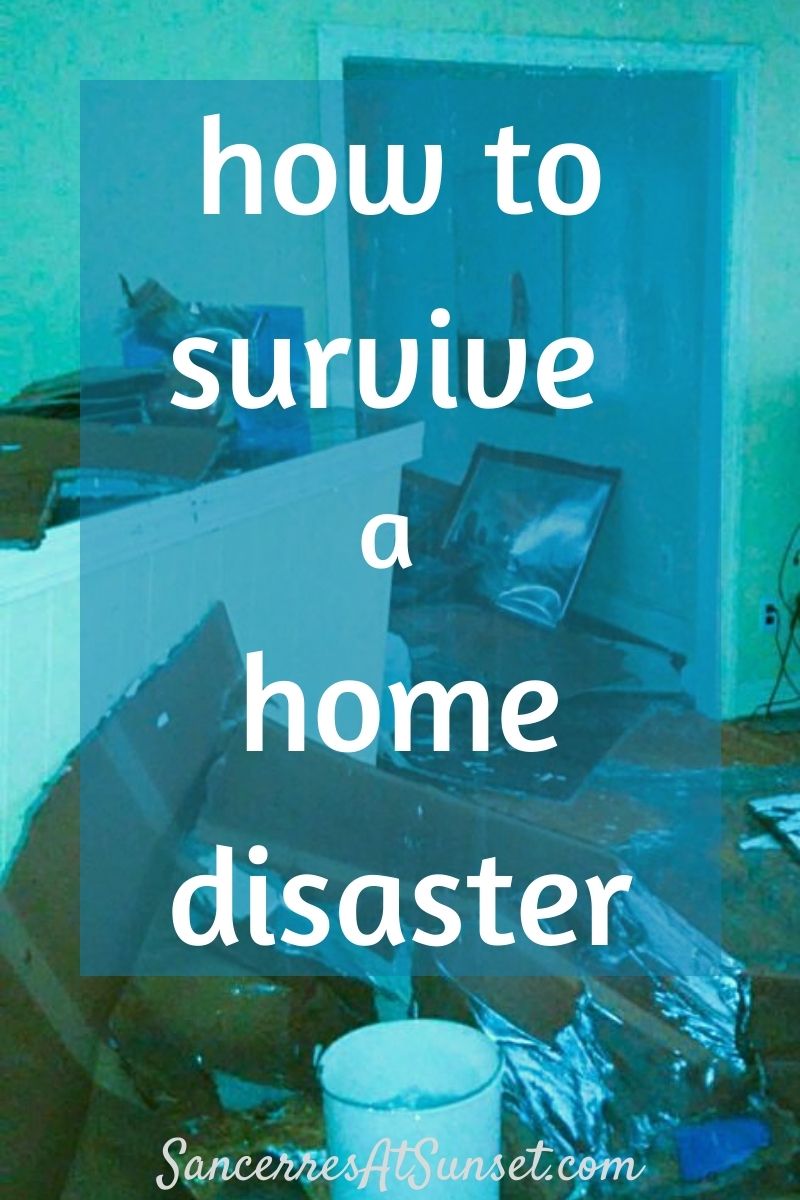
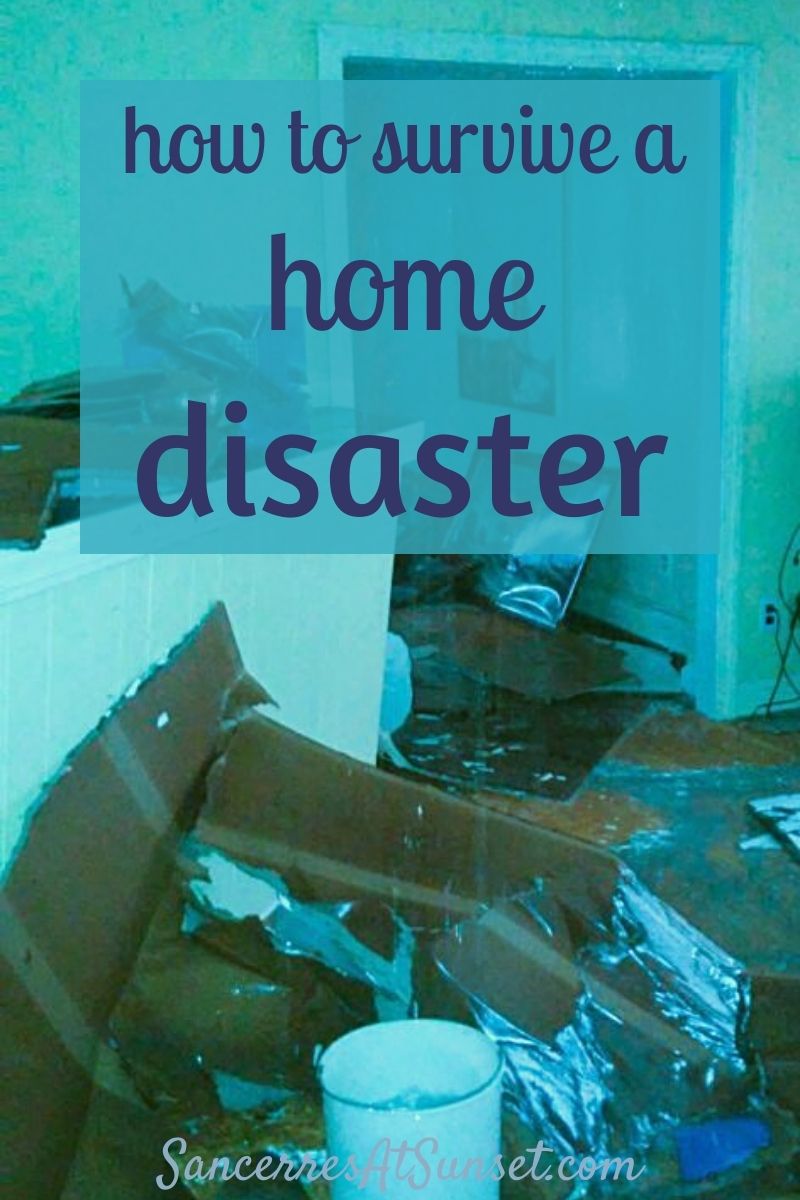
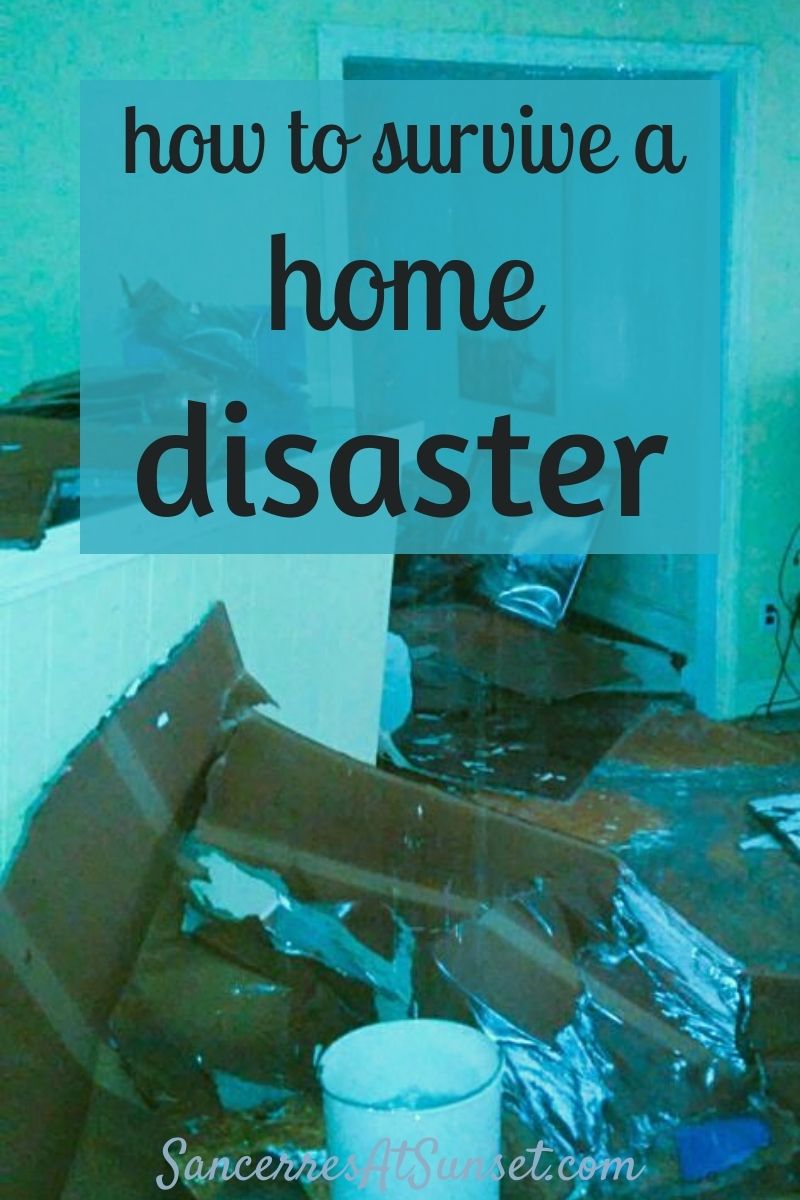






Wow, Leslie!!! Terrible! I can’t believe you went through all of this – and your hand!!! We have a crazy (almost) flood story on my site as well – averted b/c of a water alarm by the water heater. Just about 2 days after we moved in!
Curious about the information about the local regulations. Can you explain more about that part of the post? Thank you!
Hi, Adrienne, thanks for your comment, I am so glad that you averted a similar disaster! I’m not sure I’m quite getting the crux of your question, so sorry if this is off the mark– Basically, governments at all levels are going to impose health, safety, and environmental rules and regulations. My experience was that compliance was pretty simple and straightforward when dealing at the town level. For example, our town sent an inspector a couple of times to make sure that the electricians’ work was safe and in compliance. It was little trouble to coordinate him coming out when required, and he was pleasant and professional. Things were much more difficult at the state level. For instance, the asbestos supervision was enforced by the state, and it was hard just to get someone on the phone to go through the process of being allowed to get my flooded house demo’d–additional stress I didn’t need. So it’s better to try to keep enforcement at the most local level, based on my experience. Hope this clarifies!
Finding the right people and services really does make all of the difference. We live in a place where winter floods are very common, and we learned early on to find the right water damage restoration service. I would highly recommend doing research on the right services before the emergency to make sure you know who to turn to when the crap hits the fan.
Wow! Such a huge ordeal! That was very interesting to read and your tips at the end are very practical. Thanks for sharing so we can learn from your disaster.
Thanks, Melissa, I do hope my experience can save someone else a lot of trouble!
Thank you, I’m so glad you both found my tips valuable. I have great empathy for others who go through similar disasters, and I do want my advice to be helpful for them.
Home disasters are so awful! We lived through Hurricane Harvey and while our home didn’t flood, so many did and it was heartbreaking! I’m so sorry for what you’ve gone through! This is a great article to help people prepare for the unexpected because home disasters can and do happen all the time.
Wow! That was some ordeal! I know people who had similar experiences after Superstorm Sandy – I live in New Rochelle, NY, just north of NYC. I commend you on your strength and perseverance. Great tips, too!